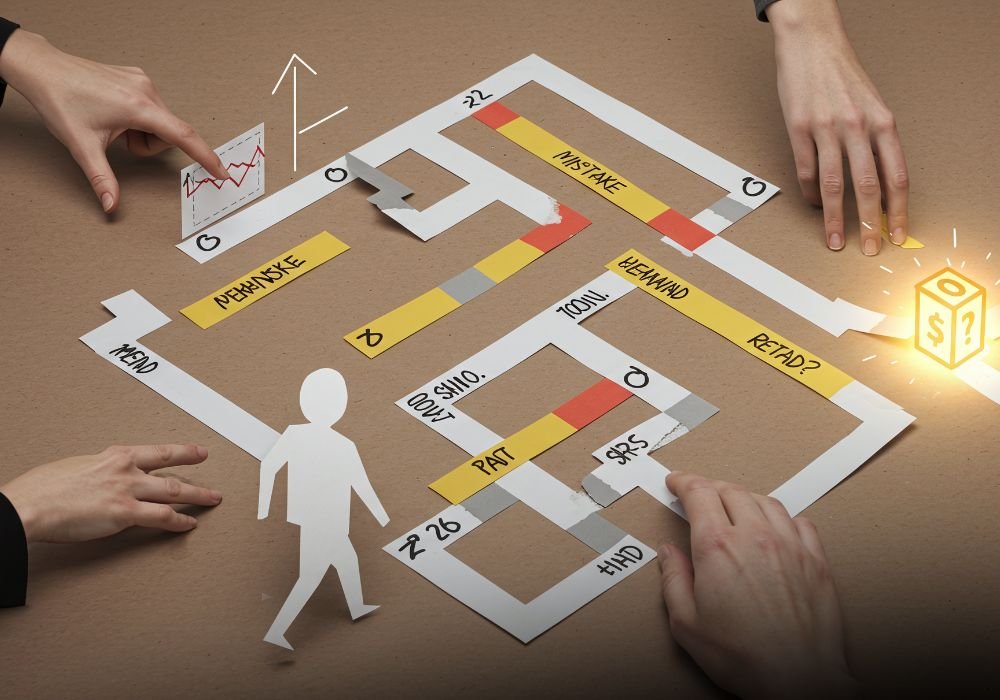Trade wars don’t just affect politicians and big businesses—they hit close to home. Prices rise, jobs are lost, and entire industries can struggle. What starts as a political move between countries can quickly shake the wallet of a family thousands of miles away.
Let’s break down how global trade wars really impact local economies and what it means for everyday people.
What is a Trade War?
A trade war happens when countries start placing tariffs or restrictions on each other’s goods. It’s usually a response to protect local industries or punish another nation’s policies. These measures might seem strategic on paper, but they often create ripple effects that spread far beyond international borders.
Prices go up, supply chains break down, and uncertainty creeps into the markets. Consumers, businesses, and even workers who had nothing to do with the conflict end up paying the price. It’s like watching two giants fight while everyone around them gets caught in the dust.

How Trade Wars Hurt Local Prices
One of the first places people feel the effects of a trade war is at the store. Tariffs usually mean higher costs for imported goods. Those costs often get passed on to customers.
If your country imports steel and suddenly faces heavy tariffs, everything from cars to refrigerators can become more expensive. The same goes for everyday items like food, electronics, and clothing. Even if a product is made locally, its parts may come from somewhere else. Higher import costs drive up prices for those parts, which increases the final price of the product.
This type of price increase is called cost-push inflation, and it can shrink consumer buying power in no time.
Job Loss and Industry Shifts
Another hard-hitting impact is job loss. When businesses face higher costs due to tariffs, they often have to make cuts. Some might outsource more jobs or shut down entirely if they can’t stay competitive.
Industries like agriculture, manufacturing, and automotive are especially vulnerable. For example, if farmers rely on exporting soybeans to a major country and that country responds to a trade war by buying elsewhere, demand drops. Local farmers then face oversupply and falling prices.
Even in sectors not directly affected, job markets feel the pressure. When large employers scale back, it ripples through supporting industries like transportation, packaging, and retail.
Local Businesses Feel the Heat
Trade wars don’t only hurt big companies. Small and mid-sized businesses get hit even harder. They have fewer resources to absorb price hikes and limited options to change suppliers.
Let’s say a small electronics shop depends on parts from another country. If those parts suddenly become too expensive or unavailable, the business may not survive. Understanding and managing your business overhead percentage is key to surviving price increases and staying profitable. Unlike large corporations, smaller players can’t afford to set up factories overseas or make quick shifts in their supply chain.
The end result? Layoffs, store closures, and shrinking local economies.
Global Moves, Local Consequences
Trade decisions made in high-level talks often seem far removed from daily life. But when one country slaps a tariff on another, retaliation often follows. These tit-for-tat measures can escalate fast, disrupting global supply chains.
Local economies, especially in developing nations, suffer the most. Many rely heavily on trade to fuel growth and create jobs. When those trade lines are blocked, economic growth slows down. Poverty can rise. Opportunities dry up.
In more advanced economies, the slowdown might not be as severe, but it’s still noticeable. Consumer confidence can dip. Investment stalls. People stop spending as much, and that drags the economy down further.
Trade Wars Affect Global Trust
Trade wars also weaken trust between nations. When countries stop cooperating, global systems break down. Businesses lose confidence in the stability of international markets.
This can discourage innovation and long-term investments. Why build a factory in a region where trade rules could change overnight?
When trade relationships become unpredictable, the uncertainty puts local workers and entrepreneurs in tough spots. Planning becomes harder, risk becomes greater, and progress slows.
Political Pressure at Home
Leaders may start trade wars to protect their home industries, but the backlash at home can be brutal. As voters face higher prices and job losses, pressure mounts on governments to change course. But reversing a trade war isn’t always quick or simple.
Negotiations take time. Some relationships may never fully recover. In the meantime, local economies bear the cost.
Not All Outcomes Are Bad
To be fair, not every part of a trade war is negative for everyone. Some domestic industries may benefit in the short term. For example, if tariffs make imported cars more expensive, a local carmaker might sell more.
But these gains are usually uneven and temporary. Eventually, other parts of the economy absorb the shock. And retaliatory tariffs often come back around to hurt the same country that started the war.
Long-Term Damage vs. Short-Term Strategy
The bottom line? Trade wars may be waged with long-term goals in mind—like protecting national security or fixing trade imbalances—but they often cause short-term pain, especially at the local level.
The longer a trade war drags on, the harder it becomes to repair the damage. Supply chains break down. Workers lose their skills. Communities lose their income.
And the recovery doesn’t happen overnight.
What Can Be Done?
Governments can prepare better by building stronger trade relationships through diplomacy, not confrontation. Investing in local infrastructure and innovation can also help reduce dependency on foreign goods.
Companies can also improve resilience by adopting strong ESG principles — focusing on environment, social responsibility, and good governance.
For local economies, diversifying industries and retraining workers can build resilience. But these steps need long-term commitment, not short-term political wins.
Final Thoughts
Trade wars aren’t just political showdowns. They hit people where it hurts—at work, in their budgets, and in their communities.
The effects are deep and wide-ranging. From higher grocery bills to lost jobs, the cost of global trade conflicts is often paid by those least involved in the decision-making. Understanding these effects helps create pressure for smarter, more thoughtful trade policies that put people first.
FAQs
Q: Do trade wars always raise prices?
A: Yes, most of the time. Tariffs make imported goods more expensive. Businesses usually pass those extra costs on to customers.
Q: Who suffers the most during a trade war?
A: Local workers, small businesses, and export-dependent industries usually feel the pain first and hardest.
Q: Can a trade war ever help an economy?
A: Some local industries may benefit temporarily, but the broader economy usually suffers. Gains tend to be limited and short-lived.
Q: Are trade wars common?
A: They’re not rare. Countries use them as tools in disputes over trade rules, national security, or economic strategy. The U.S.–China trade conflict is a recent example.
Q: How can local economies protect themselves?
A: By diversifying their industries, investing in worker training, and reducing overdependence on any one country for trade.










